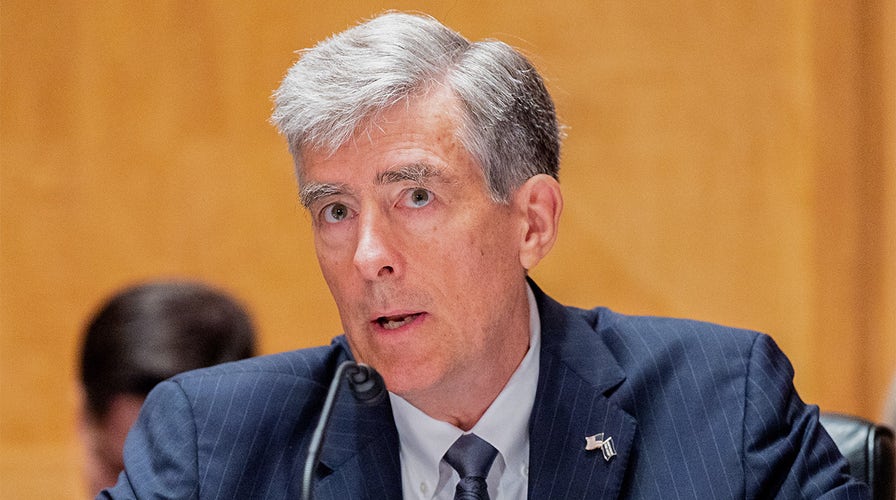John Ratcliffe: Biden's cyber warfare strategy is 'bizarre'
Former DNI joins 'The Story' to discuss the growing number of cyberattacks against the US
The Senate confirmed Chris Inglis as the first White House cybersecurity director on Thursday, on the heels of President Biden’s summit with Russian President Vladimir Putin and sharp concerns over a recent spate of cyber attacks on U.S. infrastructure.
Inglis formerly served as National Security Agency (NSA) deputy director.
The Senate confirmed Inglis through a unanimous consent vote, with no lawmakers objecting.
Inglis will now serve as head of the new Office of the National Cyber Director, an agency created through the most recent National Defense Authorization Act. Biden has proposed a budget of $15 million for the office, though the budget has not been approved by Congress.
CRITICAL ENTITIES TARGETED IN SUSPECTED CHINESE CYBERSPYING
Cyberattacks are on the rise, and they’re increasingly targeting major infrastructure installations, like transportation hubs, energy facilities and utility companies.
Biden signed an executive order last month to bolster cyberdefenses and has been under pressure to respond in kind to cyberattacks, especially those linked to Russia, China, North Korea or Iran.
In the 2020 SolarWinds hack, at least 200 organizations around the world were compromised through exploited software from SolarWinds, Microsoft and VMware. U.S. intelligence believed the SolarWinds hack to be linked to the Russian government.
On Wednesday, Biden said he gave Putin a list of 16 critical infrastructure entities that are "off-limits" to cyber attack.
Gen. Jack Keane told Fox News that the U.S. has a "formidable counterattack capability" to respond to cyberattacks, but "never responded with any degree of consequence" to the SolarWinds attack.
Hackers also caused a major gas shortage across the eastern seaboard by targeting Colonial Pipeline last month, tried to poison a Florida water-treatment plant, and held hospital IT systems hostage. Earlier this month, hackers forced the world’s largest meat producer to shut down all of its US beef plants by targeting JBS holdings.
At a confirmation hearing last week, Inglis emphasized the need for government to step in to help the private sector address a growing ransomware crisis.
CLICK HERE TO GET THE FOX NEWS APP
"When [private firms are] conducting critical activities upon which the nation’s interests depend, it may well be that we need to step in and we need to regulate or mandate in the same way we’ve done for the aviation industry, for the automobile industry," he said, according to Cyberscoop.





